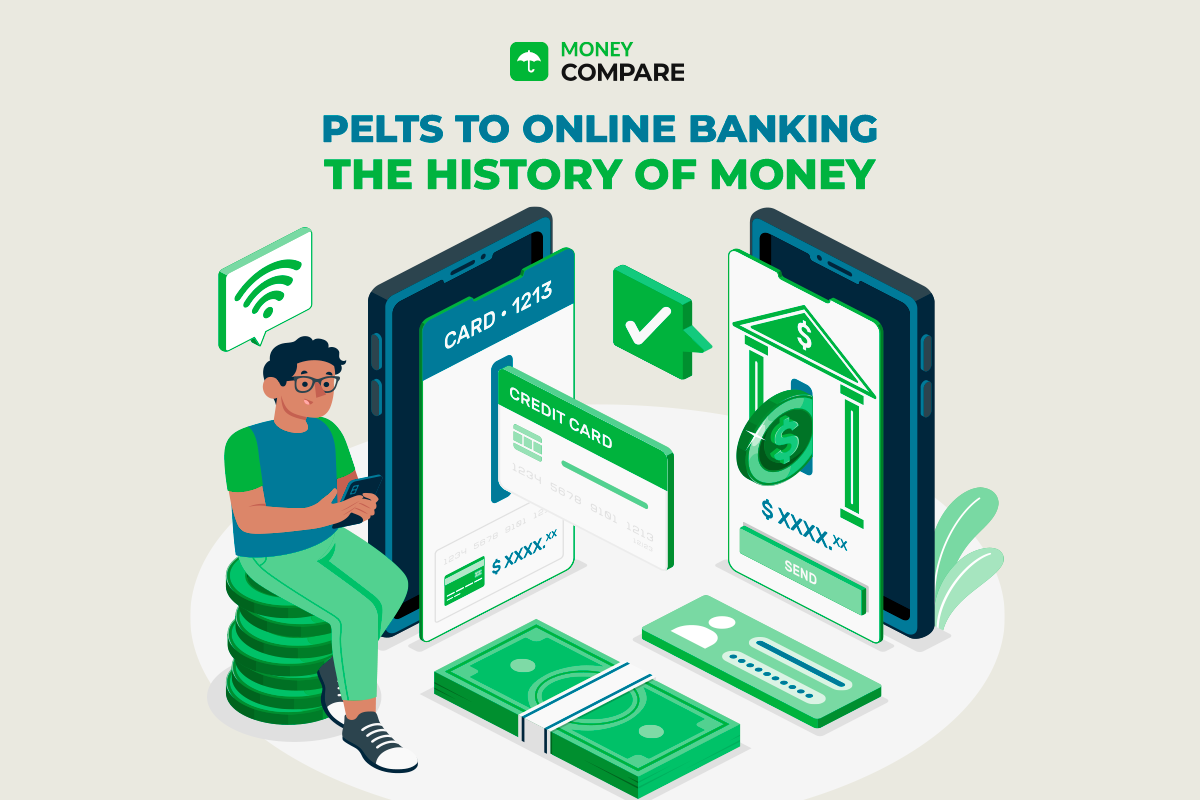Humans have used money and the practice of bartering to trade goods and services for thousands of years. It is a fascinating topic, and a great way to understand how our economy functions today. With history, we can learn lessons about our finances, and how to make better decisions.
Let’s take a walk back through time, through the history of money.
The Rise of Bartering
Once upon a time, people used the barter system to trade goods and services before money was invented. For example, a farmer might trade some livestock for vegetables. Or another might trade a laborious task for some vegetables.
This system dates back to 6,000 BC, when Mesopotamian tribes introduced the practice to the Phoenicians. In the absence of money, they traded things for things, such as tea, salt, and food. This practice became the building blocks for the way the economy functions to this day.
The First Coins
The first coins originated from Lydia (modern turkey) and China, dating back to the 7th century BCE. They were each made of slightly different materials. In China, the coins were made of bronze, and they were distinctly shaped like farming tools. The coins of Lydia were made of a combination of gold and silver. State members of Lydia were the original recipients of the coins, given officially by the government.
The ancient Greeks also created their own version of the coin in the late 7th century.
Turning Paper into Money
China was the first to create paper money during the Song Dynasty in the 11th century. Coins of bronze and copper were the main form of currency for hundreds of years before the invention of paper money. However, the weight of these coins became cumbersome as the international trade increased.
Merchants, trying to find a solution to the weight problem, began to make trade with transaction receipts around 900 CE. Authorities of the Early Song gave a handful of shops permission to issue the transaction receipts. By the early 1020s, the government began to officially issue paper money.
The Rise of Banks
Our banks have their roots in the Middle Ages, originating in parts of Italy such as Venice, Florence, and Rome. There were three professions that arose during this era of early banks. There were the pawnbrokers. They issued temporary loans to folk in exchange for property. There were money-changers, who worked with currency exchange. And there were merchant bankers, who were wealthy citizens that offered loans to people from their own funds.
The first bank in the US, the Bank of the United States, was established in 1791 by Alexander Hamilton. As the first Secretary of State, he believed that a national bank would help create stability and support the country’s credit.
The Weight of Gold
Gold became the standard by which money was valued in England by 1816. Each bank note would represent a particular amount of gold. As a result, there was a limited printing of notes. It also meant that other currencies could now have some value. This was called the Gold Standard Act. The United States took up this standard, until it slowly faded out by the 1970s.
Credit Cards and Online Banking
With the rise of the internet, we handle money very differently to people of the past. No longer always a physical item, our funds can be transferred and converted online. People can now use little plastic cards, and cards in their Google or Apple wallet, to pay for things, both out of their own funds, or by borrowing a certain amount of rolling funds.
Amazon and eBay launched in 1995, making 1 million sales by 1997. Paypal launched in 1998, offering a more secure payment method for consumers. Nowadays, most of our purchases are made online. We can even order our groceries online!
Comparing Bills
As our banks and funds have long since shifted to the digital world, we purchase and pay for our utilities online. With a plethora of options on the market in New Zealand, it is important to compare your broadband, power, mobile, and finances, to make sure you are making the right decision for your unique needs, and avoiding paying for more than you need to.
Here at NZ Compare, we understand how hard Kiwis work for their money. In this cost of living crisis, it is vital that we make fully informed decisions about where we put our money, so that we can make savings where possible. That is why we have a range of comparison platforms that are user-friendly, bias-free and free to use. You can compare your broadband, power, mobile, and finances within just minutes, and unlock better deals. Take advantage of our platforms, which will help you discover savings that will truly make a difference to your budget.
Further Reading:




